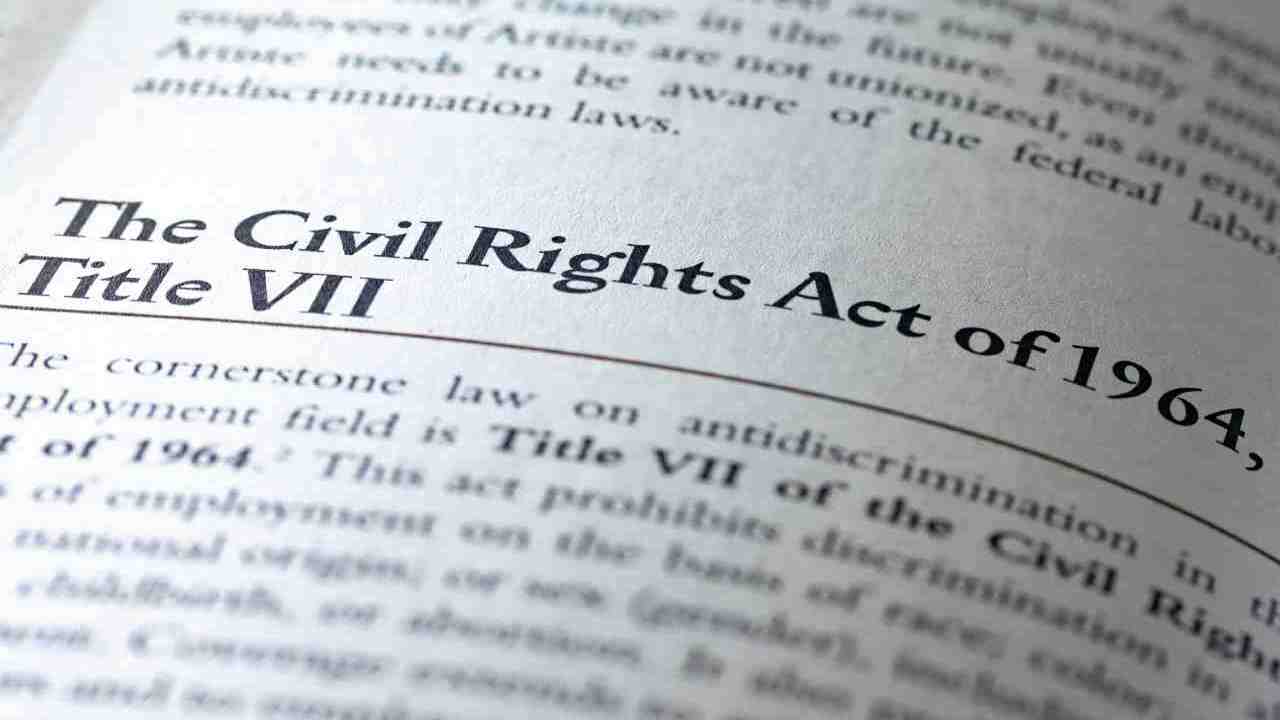Title VII of the Civil Rights Act of 1964 is a landmark piece of legislation that transformed the American workplace by prohibiting employment discrimination. This blog aims to provide a thorough yet accessible overview of Title VII, its significance, and its impact on employment practices in the United States.
What is Title VII?
Title VII is a section of the Civil Rights Act of 1964 that makes it illegal for employers to discriminate against employees or job applicants based on race, color, religion, sex, or national origin. This law applies to employers with 15 or more employees, including federal, state, and local governments, as well as private and public colleges and universities.
Historical Context
Before the enactment of Title VII, discrimination in the workplace was rampant. Employers could legally refuse to hire someone based on their race, gender, or religion. The Civil Rights Movement of the 1960s, led by figures such as Martin Luther King Jr., highlighted the pervasive inequalities faced by African Americans and other minority groups. This movement created the momentum needed for significant legislative changes.
President Lyndon B. Johnson signed the Civil Rights Act into law on July 2, 1964. Title VII was a crucial part of this act, aiming to eliminate employment discrimination and promote equal opportunity in the workplace
Key Provisions of Title VII
Title VII encompasses several critical provisions designed to protect employees and job applicants:
- Prohibition of Discrimination: Employers cannot discriminate based on race, color, religion, sex, or national origin in any aspect of employment, including hiring, firing, promotions, pay, and job assignments.
- Harassment: Title VII prohibits harassment based on the protected categories. This includes sexual harassment, which can create a hostile work environment or result in adverse employment decisions.
- Retaliation: Employers are forbidden from retaliating against employees who file discrimination complaints, participate in an investigation, or oppose discriminatory practices.
- Reasonable Accommodation: Employers must provide reasonable accommodations for employees' religious practices unless it causes undue hardship on the business
The Role of the Equal Employment Opportunity Commission (EEOC)
Title VII established the Equal Employment Opportunity Commission (EEOC) to enforce the law. The EEOC investigates discrimination complaints, mediates disputes, and can file lawsuits on behalf of employees. The commission also provides guidance and education to employers and employees about their rights and responsibilities under Title VII
Impact of Title VII
Title VII has had a profound impact on the American workplace. It has opened doors for millions of individuals who were previously excluded from certain jobs due to their race, gender, or religion. Here are some of the significant impacts:
- Increased Diversity: Title VII has contributed to a more diverse workforce by ensuring that employment decisions are based on merit rather than discriminatory factors.
- Legal Precedents: Numerous court cases have interpreted and expanded the scope of Title VII, addressing issues such as sexual harassment, pregnancy discrimination, and LGBTQ+ rights.
- Cultural Shift: The law has helped shift workplace culture towards greater inclusivity and respect for diversity.
Challenges and Criticisms
Despite its successes, Title VII has faced challenges and criticisms:
- Enforcement Issues: Some critics argue that the EEOC lacks the resources to effectively enforce Title VII, leading to delays in resolving complaints.
- Subtle Discrimination: While overt discrimination has decreased, subtle forms of discrimination, such as unconscious bias, still persist in many workplaces.
- Legal Loopholes: Employers sometimes exploit legal loopholes to circumvent Title VII protections, such as misclassifying employees as independent contractors.
Recent Developments
Title VII continues to evolve through legislative amendments and judicial interpretations. Recent developments include:
- LGBTQ+ Protections: In 2020, the Supreme Court ruled in Bostock v. Clayton County that Title VII's prohibition on sex discrimination includes discrimination based on sexual orientation and gender identity.
- Pay Equity: Efforts to address pay disparities based on gender and race have gained momentum, with some states enacting laws that complement Title VII's protections.
Practical Tips for Employers
To comply with Title VII and foster an inclusive workplace, employers should:
- Implement Anti-Discrimination Policies: Develop and enforce clear policies that prohibit discrimination and harassment.
- Provide Training: Regularly train employees and managers on diversity, equity, and inclusion, as well as their rights and responsibilities under Title VII.
- Establish Reporting Mechanisms: Create safe and confidential ways for employees to report discrimination or harassment.
- Conduct Regular Audits: Periodically review hiring, promotion, and pay practices to ensure compliance with Title VII.
Conclusion
Title VII of the Civil Rights Act of 1964 remains a cornerstone of employment law in the United States. By prohibiting discrimination and promoting equal opportunity, it has helped create a more inclusive and diverse workforce. While challenges remain, ongoing efforts to enforce and expand Title VII's protections continue to shape a fairer and more equitable workplace for all.
Disclaimer: The information provided above is for informational purposes only and does not constitute legal advice. Please consult a legal professional before acting on any information provided.



